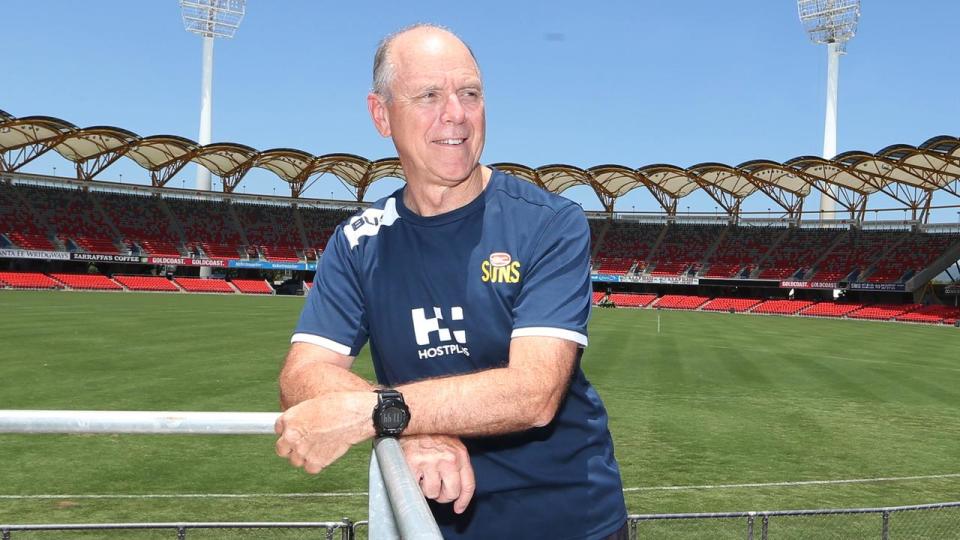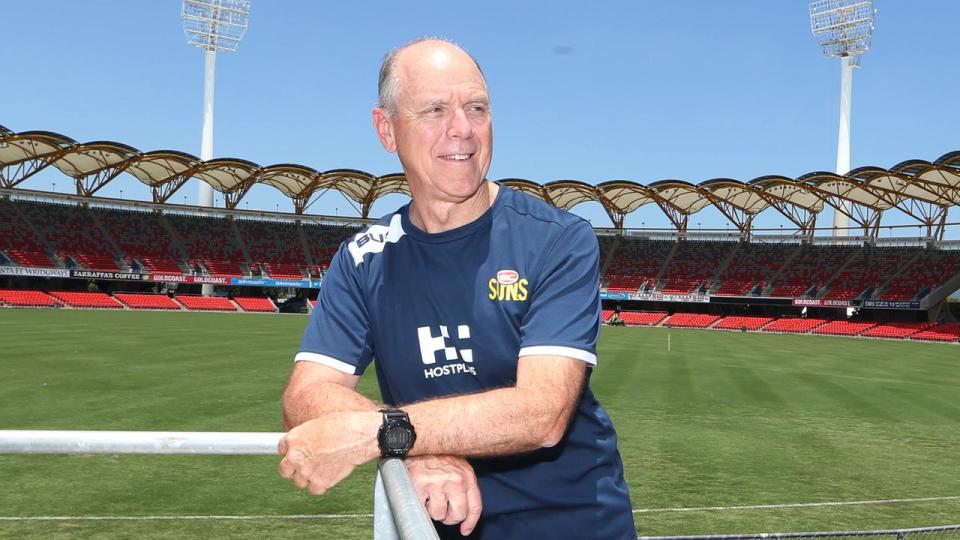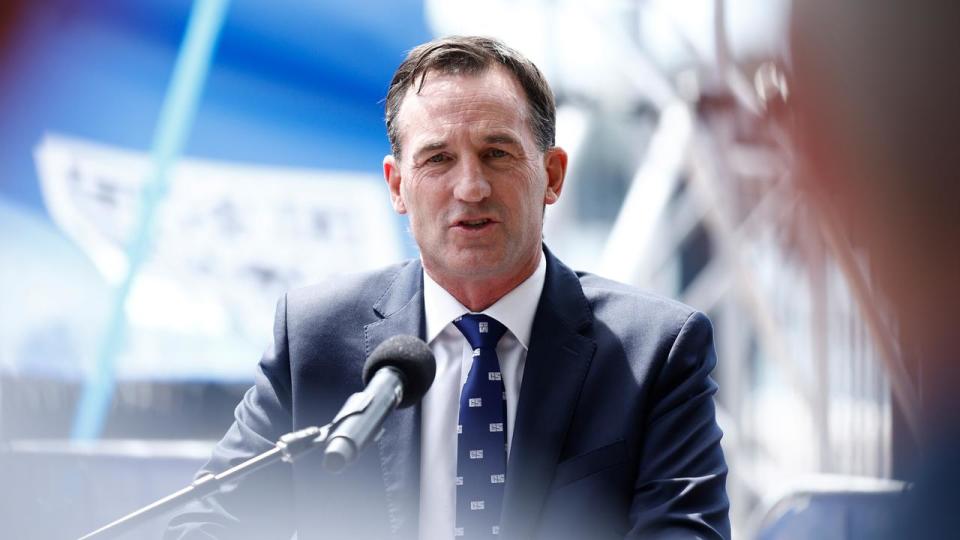‘Not true’: AFL doctors blast bombshell claim

The president of the AFL’s doctor’s association has called accusations players had been encouraged to fake injuries to avoid positive match-day drug tests as “simply not true”.
It comes as the AFL maintained it was “unapologetic” about club doctors taking steps to prevent players who test positive to illicit substance from playing or training after an admission weekly testing has been taking place for “some time”.
But in its response to claims made in federal parliament on Tuesday by federal MP Andrew Wilkie, a league statement didn’t address accusations doctors urged players who tested positive to fake injuries.
The shock claims caught several coaches by surprise.
A signed statement from former Melbourne doctor Zeeshan Arain claimed that the AFL conducted illicit drug tests to help players avoid being detected on game days and then advised them to fake injuries to keep coaches in the dark.
Melbourne coach Simon Goodwin said his club would be seeking answers but both he and Essendon counterpart Brad Scott said the league’s medical policy was something the players and the league conducted.
But Dr Barry Rigby, the doctor’s association president, hit back declaring the AFL’s medical model was” based on trust and confidentiality between the player and club doctor” and dismissed suggestions of any cover-ups.
“The club doctors’ prime responsibility is, and always will be, the health and wellbeing of the athlete,” he said.
“The suggestion that this unique privilege has been somehow manipulated is simply not true. Such comments are disappointing, and represent a distortion of a process aimed at supporting player welfare.

The AFL Doctors Association supports the AFL’s Illicit Drugs Policy, which aims to deter use while providing avenues for education and treatment. This approach aligns with our ethos of empathy and support.
“We maintain transparent communication with the AFL, ensuring that any substance use concerns are managed with discretion and in accordance with medical ethics, the AFL’s guidelines, and WADA’s code.”
In it’s response on Wednesday, the AFL confirmed it conducted its own testing outside of that done by Sport Integrity Australia as part of a drug policy that “specifically deals with the use of illicit substances out of competition and is focused on player health and wellbeing”.
The league supported the model that prevented players from playing or training “knowing they have recently taken an illicit substance” despite that knowledge being kept from club officials other than doctors.
“The policy seeks to reduce substance use and drug-related harms for AFL players and aims to inform and rehabilitate players through education and intervention,” the statement said.
“It exists alongside and in addition to the Australian Football Anti-Doping Code which covers prohibited substances including some illicit substances in competition as prescribed by the WADA prohibited list.
“Urine tests conducted by doctors to determine if a player has used illicit substances are part of the AFL’s illicit drug policy medical model and have been for some time.
“Doctors may use those urine tests to obtain an immediate result to determine whether any illicit substance remains in a player’s system. This is normally conducted at the club or in the doctor’s consulting rooms.
“If the test shows a substance is still in the player’s system, a doctor will take steps to prevent a player from taking part in either training and/or an AFL match both for their own health and welfare and because having illicit substances in your system on match day may be deemed performance enhancing and a breach of the Australian Football Anti-Doping Code (depending on the substance involved).
“It is absolutely imperative that no doctor or club official should ever allow or encourage a player to take the field knowing they have recently taken an illicit substance that may be harmful to their health and/or may be deemed performance-enhancing (as many illicit substances are on match day).”
Melbourne coach Simon Goodwin says he’s unaware of any players who have been removed from playing because of a positive drug test but listed as ‘injured’.
Consistently maintained this is an AFL issue, not a Demons issue.@FootyonNine@9NewsMelbpic.twitter.com/SsPnNs5cXA— Tom Morris (@tommorris32) March 26, 2024

The AFL maintained that all information had to remain confidential.
“The AFL observes that AFL players are not immune to the societal issues faced by young people with respect to illicit substances and also acknowledges that illicit drug use problems commonly co-occur with other mental health conditions,” the statement said.
“While the AFL’s medical model involves a multidisciplinary healthcare management plan, the monitoring of players is highly confidential. A doctor or healthcare professional generally cannot disclose the nature of the clinical intervention or condition to others unless the player willingly consents.
“We understand that the illicit drugs policy can be improved and we are working with the AFLPA and players to improve the policy and the system to ensure we are better able to change the behaviours of players. But we are unapologetic about club and AFL doctors taking the correct steps to ensure that any player who they believe has an illicit substance in their system does not take part in any AFL match and that doctor/patient confidentially is upheld and respected.
“The AFL will always be required to make decisions which seek to balance competing rights and interests. The medical interests and welfare of players is a priority for the AFL given everything we know about the risks facing young people generally and those who play our game in particular.”
Reacting on Wednesday, Goodwin said: “Every club would want answers and how the policy works and is it a success?
“We’ve been through a bit, but this is an AFL policy and we will be asking the appropriate questions.”
